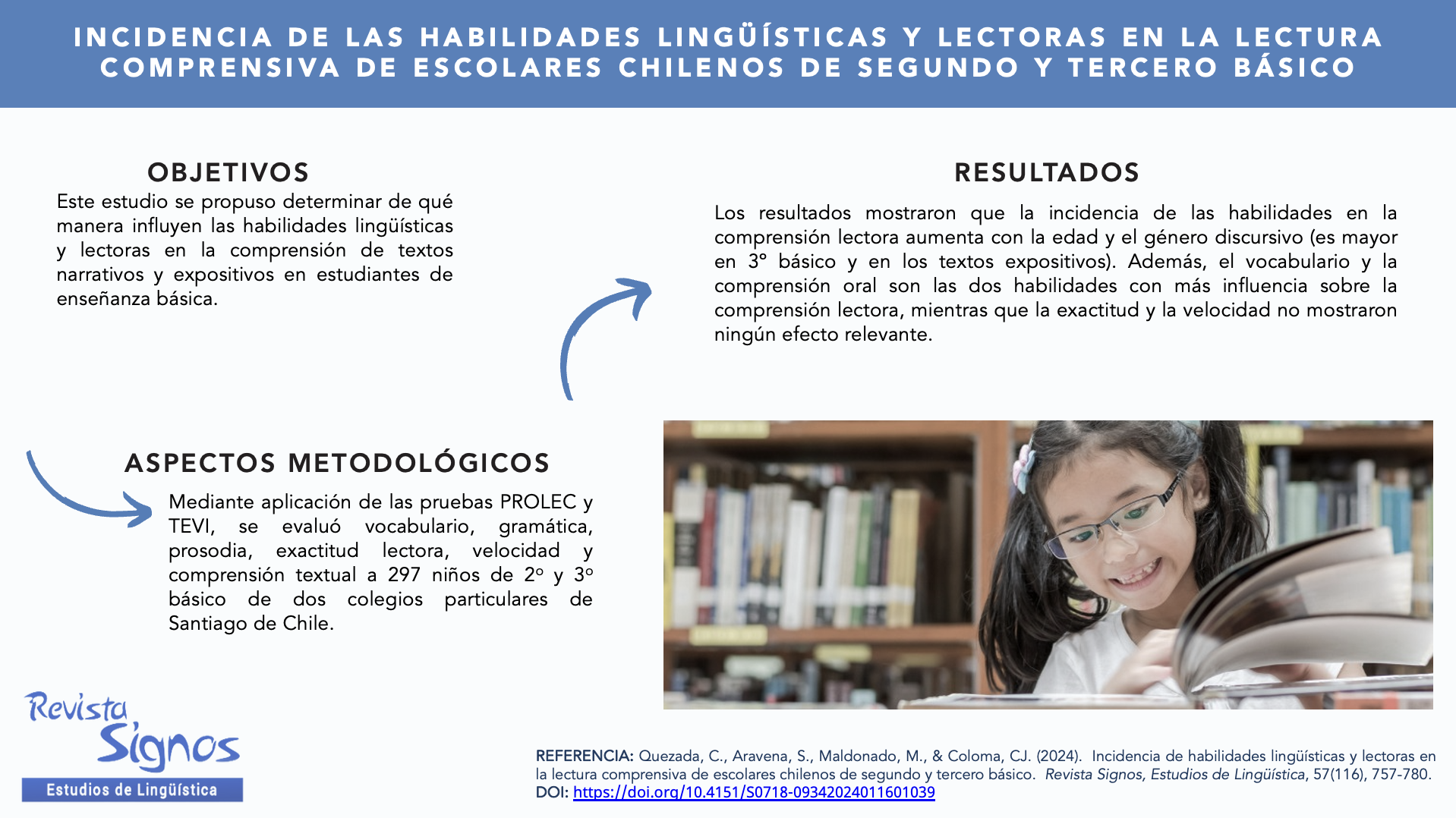Incidence of Linguistic and Reading Skills in the Reading Comprehension of Chilean Second and Third Grade Students
DOI:
https://doi.org/10.4151/S0718-09342024011601039Keywords:
reading comprehension, linguistic skills, reading skills, narrative text, expository textAbstract
The study aimed at examining the links between reading comprehension and the most commonly observed language and reading skills in literature: prosody, vocabulary, grammar, listening comprehension, reading accuracy and reading speed. Specifically, objectives were 1) to determine how selected linguistic and reading skills influence textual comprehension; 2) to establish whether this influence varies when comparing second and third grade students and 3) to observe whether the impact of the selected skills varies depending on the type of text (narrative or expository). The final sample consisted of 297 children (136 second graders and 161 third graders) belonging to two private schools from Santiago, Chile. Results showed that the relationship between reading comprehension and the measured skills varies according to grade (smaller effect in 2nd grade) and type of text (smaller effect for narrative texts). In general, vocabulary and listening comprehension were the two skills most influencing reading comprehension. No relevant effects of reading accuracy or speed on reading comprehension were observed. Results suggest than once Spanish-speaking readers reach a certain threshold of proficiency in reading skills the dimensions that influence reading comprehension the most are linguistic skills.

Published
How to Cite
Issue
Section
License
Copyright (c) 2024 Revista Signos. Estudios de Lingüística

This work is licensed under a Creative Commons Attribution 4.0 International License.
Copyright agreement:
Authors who have a manuscript accepted for publication in this journal agree to the following terms:
Authors will retain their copyright and grant the journal the right of first publication of their work by means of this copyright agreement document, which is subject to the Creative Commons Acknowledgment License that allows third parties to share the work provided that its author and first publication in this journal are indicated.
Authors may adopt other non-exclusive license agreements for distribution of the published version of the work (e.g., depositing it in an institutional repository or publishing it in a monographic volume) as long as the initial publication in this journal is indicated.
Authors are allowed and encouraged to disseminate their work via the internet (e.g., in institutional publications or on their website) before and during the submission process, which can lead to interesting exchanges and increase citations of the published work (read more here).


